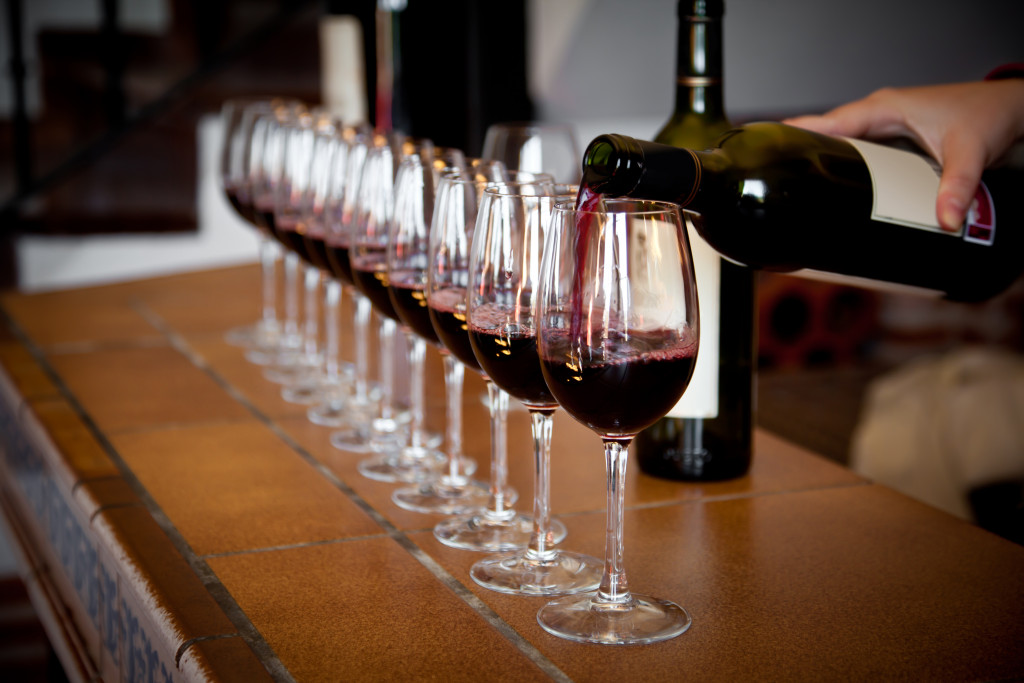So, you’re trying to live a healthier lifestyle. You’ve been going to the gym four times a week. You’ve been waking up early and doing cardio runs every morning. You’ve even changed your eating habits to include more types of nutrients and less sodium or sugar. But that one thing you just can’t seem to shake off is that glass of wine or mug of beer after a long day.
Overall, alcoholic drinks do, indeed, reduce your physical fitness. However, there’s more to it than just that. So, if you’ve been wondering whether alcohol hurts your fitness goals, here’s your answer.
Not All Bad
In the same way that pumping your body full of vitamins and minerals at all times can do more harm than good, alcohol, if taken in small amounts at reasonable intervals, can be right for you.
According to the Harvard School of Public Health, moderate drinking can be good for the body’s heart and circulatory system. However, the same article points out that the problem lies with how much moderate is. There seems to be no consensus even among alcohol experts.
Many articles point to less than one drink per day as a moderate amount. Of course, this differs depending on the body mass and metabolic characteristics of each individual.
Although experts agree that the risks depend more on how much you drink instead of what you drink, according to Healthline, some studies point to red wine as the most beneficial alcoholic drink to the body. The drink has reportedly been found to contain a lot of antioxidants.
Dead Weight
According to Active, drinking alcoholic beverages is counterproductive if your goal is to lose weight. Those drinks are just calories that the body can’t process or turn into energy. These calories end up as added weight to the body. That is especially true for mixed drinks that pack a lot of sugars.
According to Medical News Today, there’s also a chance that alcohol can push people into overeating. One of the effects that people arguably want from alcoholic drinks is the relaxing of their inhibitions. When you’re watching every single thing you consume, losing inhibition may push you over the edge and just make you binge.
Alcohol also interferes with the body’s mechanisms for burning fat.
If your fitness goals involve losing weight, then you better lay off those daiquiris for a while.
Bummer

Exercise is an integral part of a healthy lifestyle. Physical inactivity has been linked to countless health issues, including heart disease. That alone should prompt people into action.
Unfortunately, alcohol can also cause people to lose interest in exercising. That is because when you drink, your liver works hard to break down the alcohol. It means it cannot accommodate other functions such as glucose production — which is your body’s energy fuel. With less glucose, you’ll feel more tired.
Alcohol is also a diuretic. As your kidney produces more urine, you’ll lose precious hydration, too. When you exercise, you rev up the dehydration process because of all the sweat you’re letting out as well.
Sobering Up
Alcohol doesn’t precisely fit into a healthy lifestyle. It’s a matter of being honest and fair to yourself, too. If you think a glass of wine here and there won’t hurt, then by all means.
If you, however, think you’re drinking too much and dread the thought of slowing down, then it may be worth considering seeking help from professionals. There are clinics and addiction recovery centers that can help you through the process of at least reducing your consumption.
Stick to your goals. Stay sober (most of the time). Good luck!
